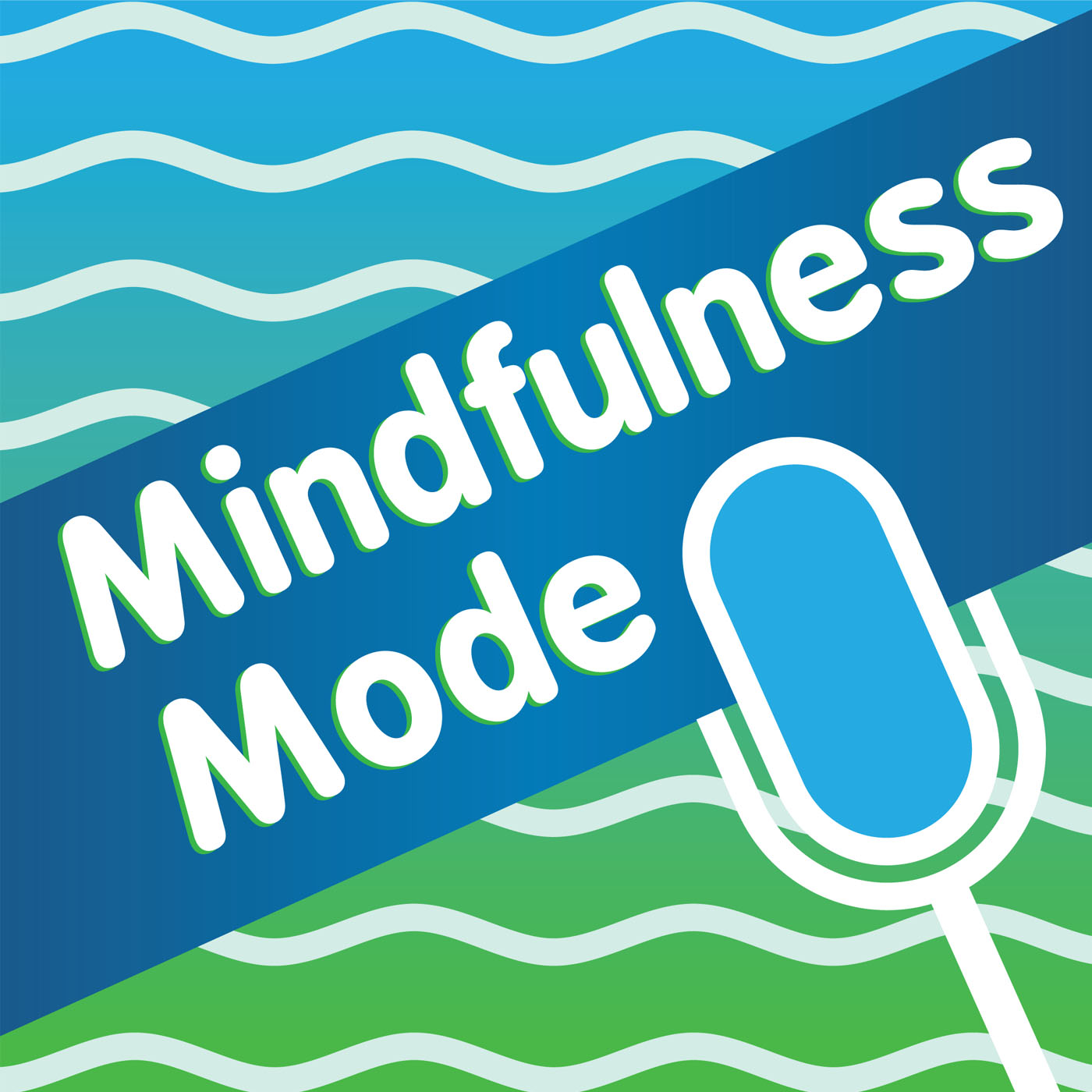
Dr. Joe Luciani helps you unlearn anxiety. He's been a practicing clinical psychologist for more than 40 years and is the internationally bestselling author of the Self-Coaching series of books, now published in 10 languages. His latest book is, Unlearning Anxiety & Depression: The 4-Step Self-Coaching Program to Reclaim Your Life (Goodman Beck, April 28, 2020). He appears frequently on national TV, radio and online, and has been featured in numerous national media sites.
Listen & Subscribe on:
iTunes / Stitcher / Podbean / Overcast / Spotify
Contact Info
- Website: www.selfcoaching.net
- Blog by Dr. Joe Luciani
- FB: Dr. Joe Luciani Self-Coaching
- LinkedIn: https://www.linkedin.com/in/dr-joe-luciani-11113611/
Most Influential Person
- Carl Jung, the Swiss Psychiatrist
Effect on Emotions
- I started in psychology because of my own anxieties. I wanted answers, that's why I got into analysis. That's why I pursued all this, I wanted answers.
- Mindfulness has been the icing on the cake. I laid the foundation and found all the gears I had to get into gear and I've put myself into a better position to experience life.
- Mindfulness now is the ability to take all of that and take that deep breath and really experience the wonder and the beauty and the excitement of life. It only gets better.
- I learned through mindfulness, every day, every decade is better than the one preceding it. I'm so encouraged by life itself.
Thoughts on Breathing
- The breath is so central to so many schools and orientations. The breath is that which we exist on.
- It is everything that is of life itself. It is the embodiment, psychologically and physically of that which sustains us. As we focus on the breath, I think we touch something much deeper.
Suggested Resources
- Book: The Book of Awakening: Have the Life You Want by Being Present to the Life You Have by Mark Nepo
- App: n/a–
Bullying Story
- A man I'm working with, in his early 60s, he was bullied as a child. The father contributed to that by forcing him to do things that made him feel uncomfortable and therefore garnered more scorn and bullying from other kids.
- In the present, he has this notion that he has to stand up to anyone, and fight back, and he loses that compassionate ability to work with people effectively because he's always on guard, expecting to be bullied.
- He's developed a kind of skewed personality because now he comes across as a very tight, almost defensive person because that child that was bullied in him was anticipating the reaction.
Related Episodes
- 433 U.S. Military Health Psychologist and Educator, Dr. Julie Kinn
- 427 Attachment Theory and Mindfulness With Dr. Gary Salyer
- 324 Finding Peace From Your Hijackal Relationships; Dr. Rhoberta Shaler
Free Gift

Episode Transcript
Note: The following transcript is a draft transcript, and as such, may contain computer-generated mistranslations.
Bruce Langford: Dr. Luciani, what does mindfulness mean to you? What's your definition?
Dr. Joe Luciani (Unlearn Anxiety): My definition of mindfulness is really anchoring yourself in the present. With anxiety and depression. We, I call it time traveling. We leave the present to either in the future with what if thinking or we're reminiscing about a sad past, but we are anywhere but mindful and present. I have often said that if you are mindfully present in what's right in front of you, your environment, your experience, it is quite literally impossible to be anxious or depressed because to be anxious and depressed you have to leave that present and travel future past. So mindfulness to me is training yourself to be more in the present. Now, are we ever totally in the present 24, seven? Not really because our brains have been wired to anticipate that protects us from saber tooth tigers and everything else. But we practice it and we try to do it more and more and more. It's a better way to live and it's a better way to certain vent. Getting anxiety with depression.
Bruce Langford: Well, let's talk about your book. Dr Luciani, in your book, you talk about ways that we can actually deal with depression ourselves if it starts to grip us. So can you, can you help us through this a little bit?
Dr. Joe Luciani (Unlearn Anxiety): Well, with depression I usually connect depression and anxiety because to me they're first cousins. Usually, you don't see a depression without anxiety and vice versa. But with depression and anxiety what is important is to realize that we have to look at our thoughts in a different way. If we are passive to our thinking, then the disruption caused by insecurity driven thinking will have its way with us. We're kind of in the back seat. Insecurity is in the front seat driving the truck and we are it's victim. So the insecurity driven thoughts, which we can get into if you'd like to at some point. But the insecurity driven thoughts will dominate if we are of what I call passive mind. So my book is really a way to develop what I call active mind. And that's to really be able to see the process of thinking in a more depersonalized way, in order to make some choices about the thoughts that flow and the reactions we have.
Bruce Langford: Right. And I love how you start your book off with a story about a frog. Can you share a bit of that with us?
Dr. Joe Luciani (Unlearn Anxiety): Thumper, Thumper. Yeah, there was, this was my all-time favorite story that there was a, I take everyone to frog land for a second. We lit, we were in a swamp here and this swamp is covered with this brick wall and all the frogs in this swamp I've never seen beyond the wall. So generation after generation, that's hog Throgs just what's on the other side of the wall, what's on the other side? So one day the mayor of the frog Ville decides to have a race of the strongest and the fittest that they'll run up and try to leap over that wall and be able to report back. So the day of the race has five frogs that are lined up and this one sickly frog is there and that's Thumper. So the strong fiber there and Thumper, the gun goes off. They're careening down the path running toward that wall.
Dr. Joe Luciani (Unlearn Anxiety): Now one thing I have to just stop you for a second because frogs are eternal pessimists. So all the frogs on the sidelines are yelling, stop, stop. You're going to hurt yourself. Stop. So the five strong frogs started to listen and they dropped out one by one by one until finally, the only frog left in the race was Thumper. And he's running and running and he takes a leap for the wall, gets about halfway up and he's hanging on. And the pessimistic frogs below a saying, let go. We'll grab you. You can't do it. You can't do it. But Thumper kept going. He got to the top of the wall and he was the first frog to ever see beyond the wall. And the reason he was able to see beyond the wall, it's because Thumper was deaf.
Bruce Langford: I love that story too. I love that story. And it's, it's certainly so true that we become blind. We become deaf to what's, you know, to reality. And I love the fact that your book is so easy to get into and it just pulls the reader right in. And then in chapter two, you pull us in again because it's entitled two words that will change your life. So could you share that with us
Dr. Joe Luciani (Unlearn Anxiety): There are two words, control and insecurity. Understanding those two words will give you the foundation to understand everything that you need to go forward. Let's start with insecurity. No one escapes. Insecurity. We all live in a world where we don't have perfect parents. We all experienced loss, separation, illness. So we all have some degree of insecurity, which is a form of vulnerability. So as we grow, in order to compensate for a vulnerability, we tend to develop controlling strategies, anticipation, where are you hiding? Avoidance, all these types of things that protect us from our feelings of vulnerability, which is not a terrible thing, but what happens over time is trying to control life is inherently stressful over time. It's like a juggler. Juggling balls, lactic acid eventually sets in. And what started out as an easy juggle becomes impossible over time. Our emotional or controlling juggle builds up a kind of psychological lactic acid. Eventually, that juggle will collapse because of the ongoing cumulative stress and when it collapses, that's the onset of anxiety and depression. So the two things, insecurity is the foundation from which control juggle Springs from and the control juggle as long as it's working insulates us somewhat from getting anxiety or depression. But if that control, juggle falters, that's when symptoms start to occur to us. Now we are relatively defenseless.
Bruce Langford: Why is it that in our society we've come to this place where there's so much shame in anxiety and especially depression, and that in itself causes so many problems?
Dr. Joe Luciani (Unlearn Anxiety): I think it has a lot to do with just feeling inadequate. I think that we, we always put on a persona, you know, that we're maintaining ourselves in our, in our place, in our family, our friends in the world. And I think with anxiety and depression, it's a very humbling experience because we feel so out of control, so vulnerable and so defenseless. So I think the shame has to do with admitting to yourself. And the world that you are indeed hobbled by your own emotions. And I think we have kind of a collective sense, at least as I grew up. I don't know about you Bruce, but where I grew up in an Italian neighborhood, if you said you had any kind of emotional problems, you get a slap across the head saying, come on, you don't need any help, just, just bear with it and get through this. So you tend to bury things. You tend to just step away from the reality of what you're feeling and try to put on a strong face.
Bruce Langford: Right. And in my family, that was true even for just general sickness, if you were sick in any way, well you’d just go to your room and deal with it. You know, like it wasn't something that was embraced in our family. That's for sure.
Dr. Joe Luciani (Unlearn Anxiety): Yeah. We are a product of our developmental experiences for better or worse. And you know, basically, we are an aggregate of all of that that has transpired in the past, in the moment. That's that present moment. That's why I'm learning anxiety and depression is not about retrospective analysis. We don't need to spend 10 years knowing why. You know, it's like a cigarette smoker. Does the cigarette smoker need to know why they took the first cigarette? Absolutely not. So all that past is embodied in the moment. So deal with the habits of the moment and you're dealing with your entire life. And that's why I think it's a more direct approach to be working with the here and now issues and problems and reframing and rethinking and taking active control. Then going back and understanding why the truth will not set you free. I started out in Friday and analysis as my experience with therapy and for years, while maybe a year and a half, two years the analyst never sent anything just free associated and you felt cleansed, almost like going to confession. You know you felt like you did something but you never got an answer. Right,
Bruce Langford: Right. So, so you believe that self-help is where we should all be looking and specifically in your book really?
Dr. Joe Luciani (Unlearn Anxiety): Well, I would love everyone to look in my book.
Bruce Langford: It's a great book on unlearning anxiety and depression. I mean, it sounds simple. Let's just unlearn it. But of course, it's not simple,
Dr. Joe Luciani (Unlearn Anxiety): It's a wonderful point you make. And in a sense, a co psychology needs to make common sense. And I've always felt that way. It's not rocket science. With all this psychobabble and all that, we've tended to complicate something that really is fundamentally common sense. Once you understand the dynamics of it, and I'll put it as simple as this. Once you understand the essential dynamic, you're either feeding your problems or you're stabbing them. It's really as simple as that. So once you understand what feeds and what you understand, what stars, you've got a format then for going forward and working on your life day to day, just as you would practice an instrument, right.
Listen to the episode to learn more from Dr. Joe Luciani








